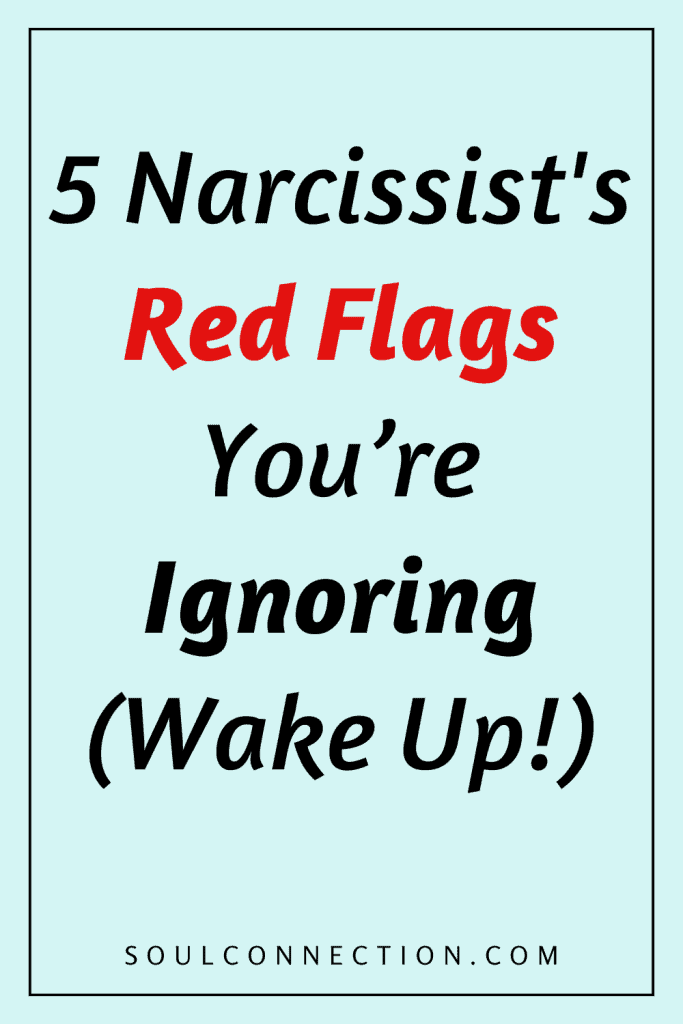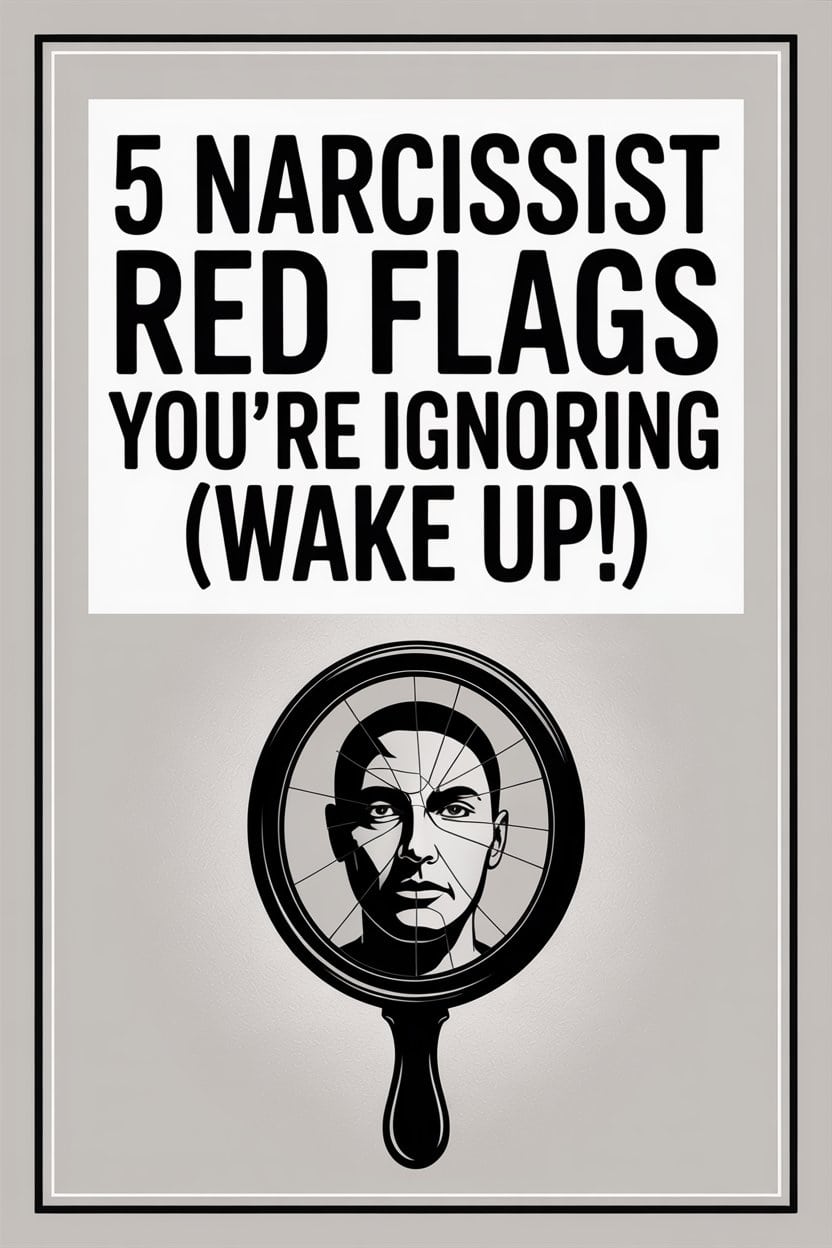Ever found yourself making excuses for someone’s behavior, then lying awake at 3 a.m. wondering, “Is it me, or are they just… impossible?”
If the word ‘narcissist’ has crossed your mind, but you’ve shrugged it off as dramatic, it’s time for a friendly reality check. There are red flags waving right in front of you, and it’s time to stop wearing sunglasses at night. Let’s get to it.
1. They’re the Star of Every Conversation
If you mention your rough day, do they immediately launch into their own saga about how their boss, their dog, and possibly the universe is out to get them? Narcissists are experts at making everything about themselves.
It’s not just conversational dominance—it’s Olympic-level one-upmanship.
It starts small. You say, “I got a cold,” and suddenly you’re hearing about the time they contracted a tropical disease and almost died, thank you very much.
Share some good news? Oh, they did it better, faster, and with more Instagram likes.
There’s a difference between sharing and hijacking. If you regularly feel like an audience member at the “All About Them” show, you’re not imagining it.
Healthy relationships feature actual dialogue. If it’s always a monologue, you’re not dating a partner—you’re dating a podcaster who’s forgotten to hit ‘record.’
2. Apologies Are Rare and Hollow
Ever gently voiced a concern, only to find yourself apologizing for bringing it up in the first place? Or maybe you’ve received those non-apologies: “I’m sorry you feel that way,” or “I’m sorry if you misunderstood me.”
Translation: “I’m not actually sorry, but let’s pretend I am.”
Genuine accountability is kryptonite for narcissists. Rather than admit a mistake, they flip it. Suddenly, you’re too sensitive, or you just don’t get their sense of humor. (Because nothing says romance like gaslighting.)
Notice how conflicts resolve—or rather, don’t. After every disagreement, do you feel more confused? Do your concerns get dismissed, minimized, or spun back onto you?
If you’re always left holding the emotional bag, you’re not crazy. You’re probably dealing with someone who views apologies as a sign of weakness, not maturity.
3. They’ve Got a Highlight Reel, But No Depth
At first, you’re dazzled. This person is charming, funny, interesting—maybe even a little intoxicating. It’s like dating the human version of a sizzle reel: all the best bits, none of the behind-the-scenes.
But hang around for a while, and the cracks begin to show. Big promises, zero follow-through. They talk about dreams, grand plans, or their amazing ex-colleagues, but when it comes to real vulnerability? Radio silence.
Ask about their flaws, fears, or actual feelings, and you’ll get the emotional equivalent of a shrug. Or, even better, they’ll talk about how their only weakness is “caring too much.” (Give me strength.)
Narcissists loathe genuine intimacy. Surface-level charm is their comfort zone. If you’re always stuck in small talk, it’s not you. It’s their refusal to get real.
4. Boundaries Are Treated Like Suggestions
Ever tried to set a boundary, only to watch it be bulldozed with a smile? Narcissists see boundaries as obstacles to be overcome, not mutual agreements.
Whether it’s needing alone time, not wanting to share your phone passcode, or saying no to something you’re uncomfortable with—it’s always up for debate.
They might guilt-trip you: “If you loved me, you’d let me in.” Or they make it into a joke, like your privacy is just adorable. Push back, and suddenly you’re “cold,” “selfish,” or “not committed.”
Healthy relationships thrive on respect for boundaries. If yours are being tested on the regular, ask yourself who benefits from that setup. Your discomfort is not a quirky personality clash—it’s a warning sign.
5. They Rewrite Reality to Suit Themselves
Ever had a conversation that left you doubting your own memory? “I never said that.” “You’re overreacting.” “That didn’t happen.” Welcome to the gaslighting suite, population: you.
Narcissists have a PhD in twisting facts. If you bring up something hurtful they did, they’ll insist you misunderstood—while simultaneously rewriting the narrative so they’re the victim or the hero. (Sometimes both, for extra flair.)
This isn’t just frustrating, it’s dangerous for your mental health. Over time, you start to wonder if you’re the problem. Spoiler: you’re not.
If reality feels like a choose-your-own-adventure novel you didn’t sign up for, it’s not your imagination.
Why Those Flags Get Ignored (And What to Actually Do)
Denial is a cozy place, isn’t it? Especially when you care about someone, or you’ve invested months (or years) in the relationship.
Maybe you think things will get better, or that you’re being too picky. After all, nobody’s perfect, right?
Here’s the hard truth: narcissistic behavior doesn’t magically improve with time or love. In fact, the longer you tolerate it, the more entrenched it becomes.
You deserve a relationship where your needs, feelings, and boundaries matter.
So what now? Time for a few practical moves:
- Start journaling your interactions. Seriously. When things get foggy, having a written record is a lifesaver.
- Talk it over with a trusted friend. You need someone who’ll call a spade a spade—not just nod along for the sake of peace.
- Revisit your boundaries. Write them down. Practice saying them out loud. If your partner ignores them, that’s all the data you need.
- Consider seeking help. Therapy isn’t just for “crazy” people (newsflash: nobody is immune to emotional confusion). A good therapist can help you sift facts from fiction.
- Plan for your well-being. If leaving is on the table, start quietly prepping. No need to announce your exit strategy. Just be ready, if and when you decide you’ve had enough.
It’s Not Dramatic, It’s Self-Respect
Spotting narcissist red flags isn’t about being hypercritical or paranoid. It’s about honoring your own sanity. Life is too short for mind games, emotional whiplash, and one-sided relationships.
Stand firm. Ask questions. Trust yourself, even if someone is working overtime to convince you not to.
And remember: “waking up” isn’t a one-time deal—it’s a habit.
You’re not fussy, needy, or overthinking. You’re wise enough to recognize when someone is selling you a love story where you’re just an extra.
Here’s to starring in your own life again. And if anyone tries to tell you otherwise? You know where the door is.


